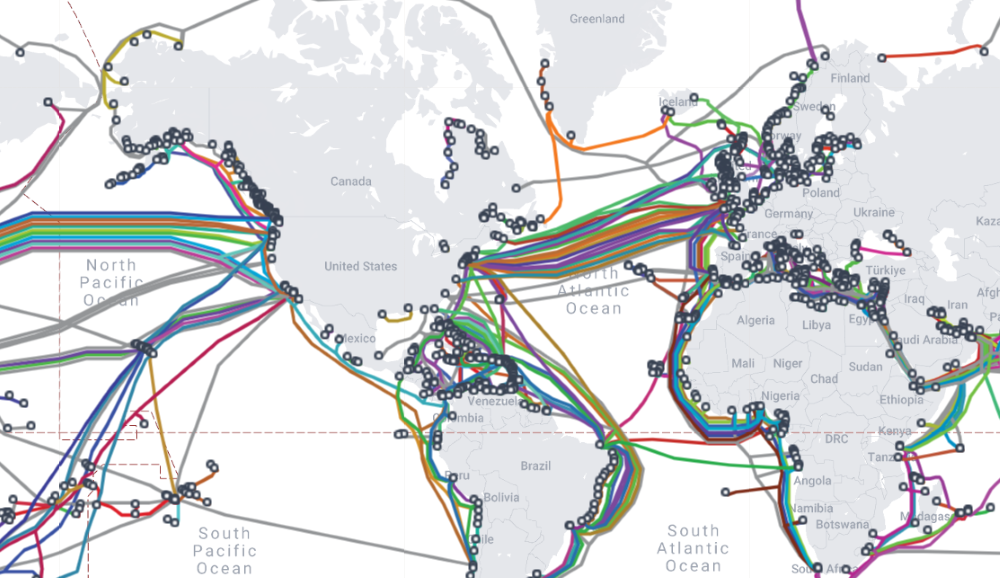This article is published in Aviation Week & Space Technology and is free to read until Aug 19, 2024. If you want to read more articles from this publication, please click the link to subscribe.

A map of global submarine cables as of Aug. 5, provided by TeleGeography.
NATO is looking to mitigate internet disruptions from a potential attack on undersea cables by rerouting the data to space.
The Hybrid Space/Submarine Architecture Ensuring Infosec of Telecommunications (HEIST) initiative was launched July 31, a NATO press release says. The goal is to develop a hybrid network made up of both submarine cables and satellite communications that ensures a continuous flow of data.
The HEIST consortium aims to field a working prototype within two years and perform a demonstration at the Blekinge Institute of Technology in Karlskrona, Sweden. It would bring together existing technologies, address legal and jurisdictional challenges, and foster international collaboration between NATO members the U.S., Iceland, and Sweden, as well as non-NATO member Switzerland. The $2.5 million project was partially funded by NATO’s Science for Peace and Security program.
The Cornell, John Hopkins Bifröst, and Swedish Defense Universities, the Swiss Federal Institute of Technology, and telecommunications companies are all involved to address “the urgent need for a more resilient internet infrastructure worldwide,” says Eyup Turmus, SPS advisor and program manager at NATO.
Nations rushed to address the vulnerability of undersea energy lines and communications cables following a September 2022 explosion that destroyed multiple Nord Stream pipelines carrying natural gas from Russia to Germany. The cause of the blast remains unconfirmed, but the event has prompted some European governments including France and Germany to develop “seabed warfare” strategies that explore ways to protect the vast infrastructure below the waves.
This past February, as much as a quarter of internet traffic between parts of Asia, Europe, and Africa was impacted when three undersea cables were damaged in the Red Sea. U.S. officials have said the cables were cut mostly by an anchor dragging from the U.K. commercial ship the Rubymar as it sank after an attack by Houthi rebels.
Some 450 submarine communications cables are currently in operation, and they enable about 99% of intercontinental digital data exchanges, according to data provided in France’s 2022 seabed warfare strategy.





